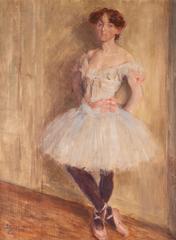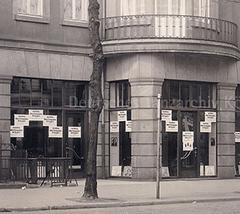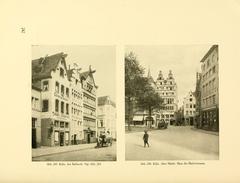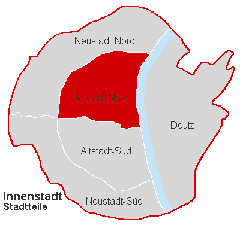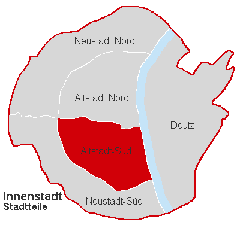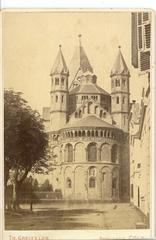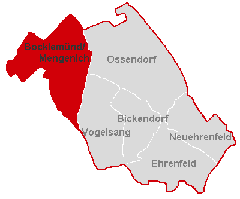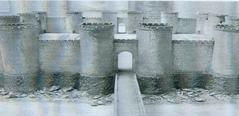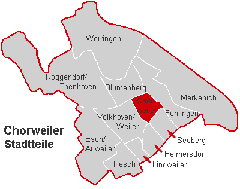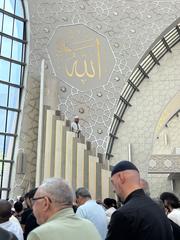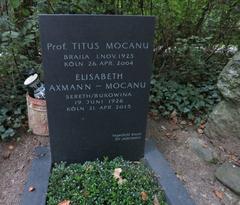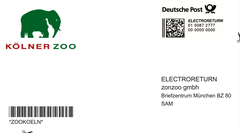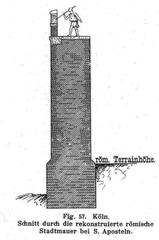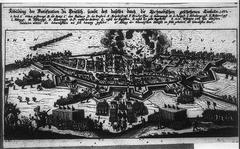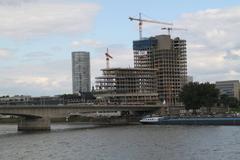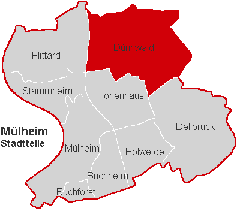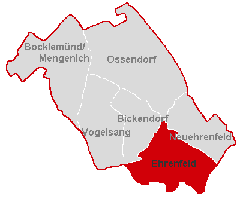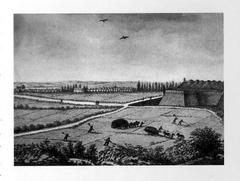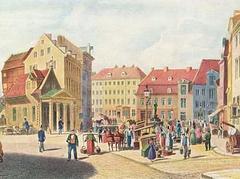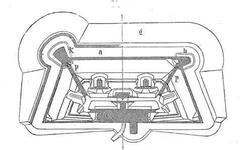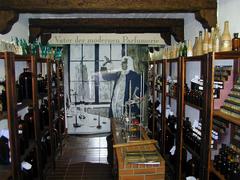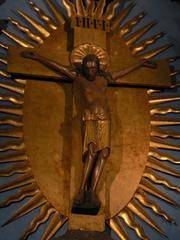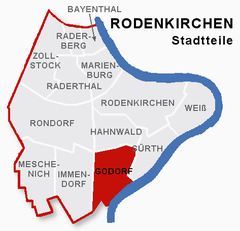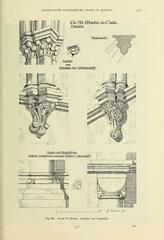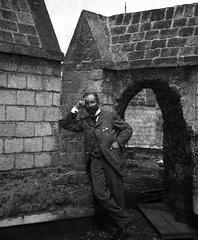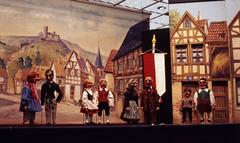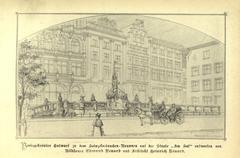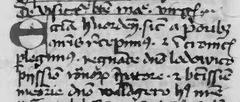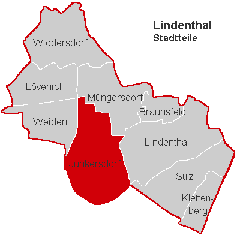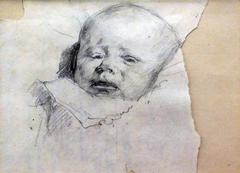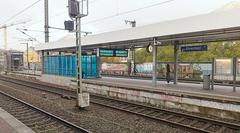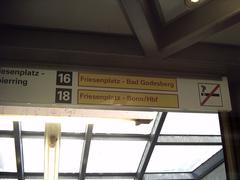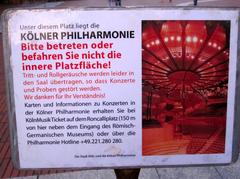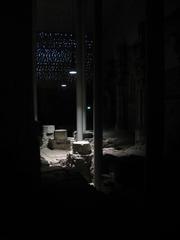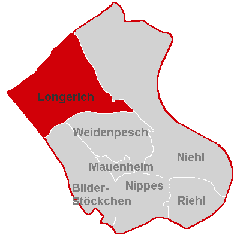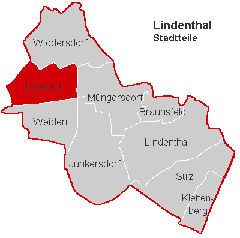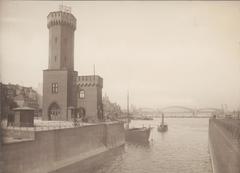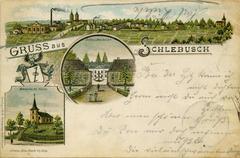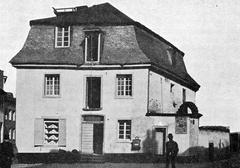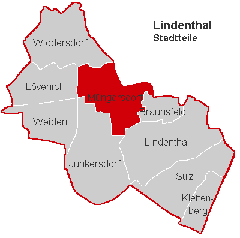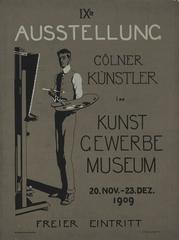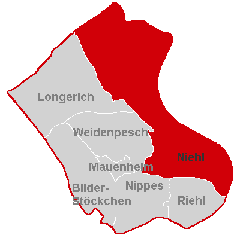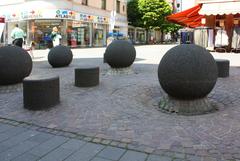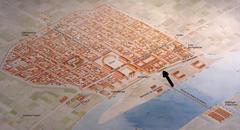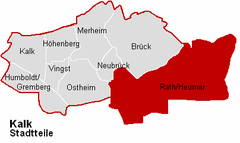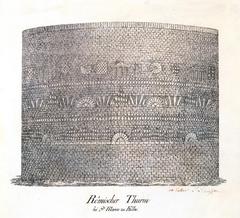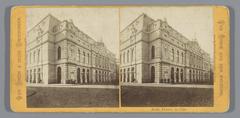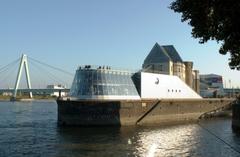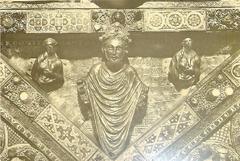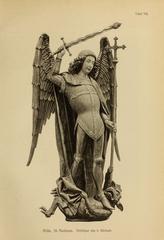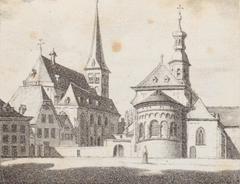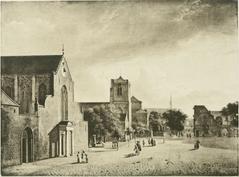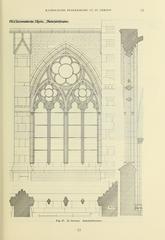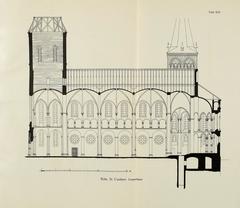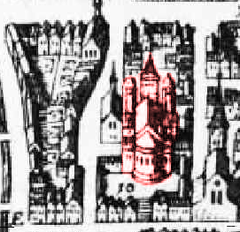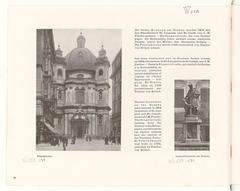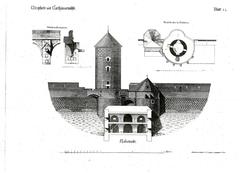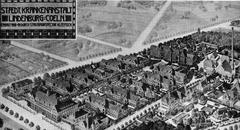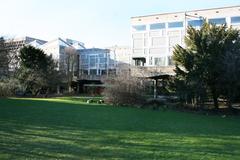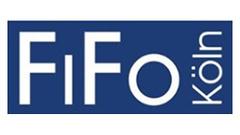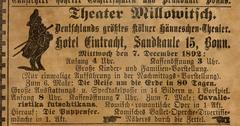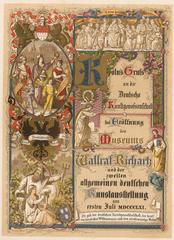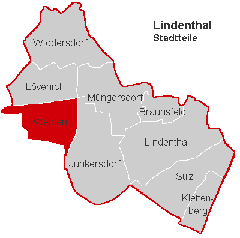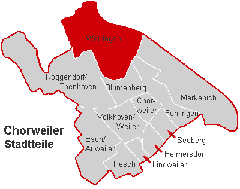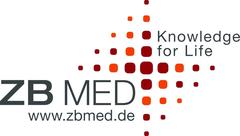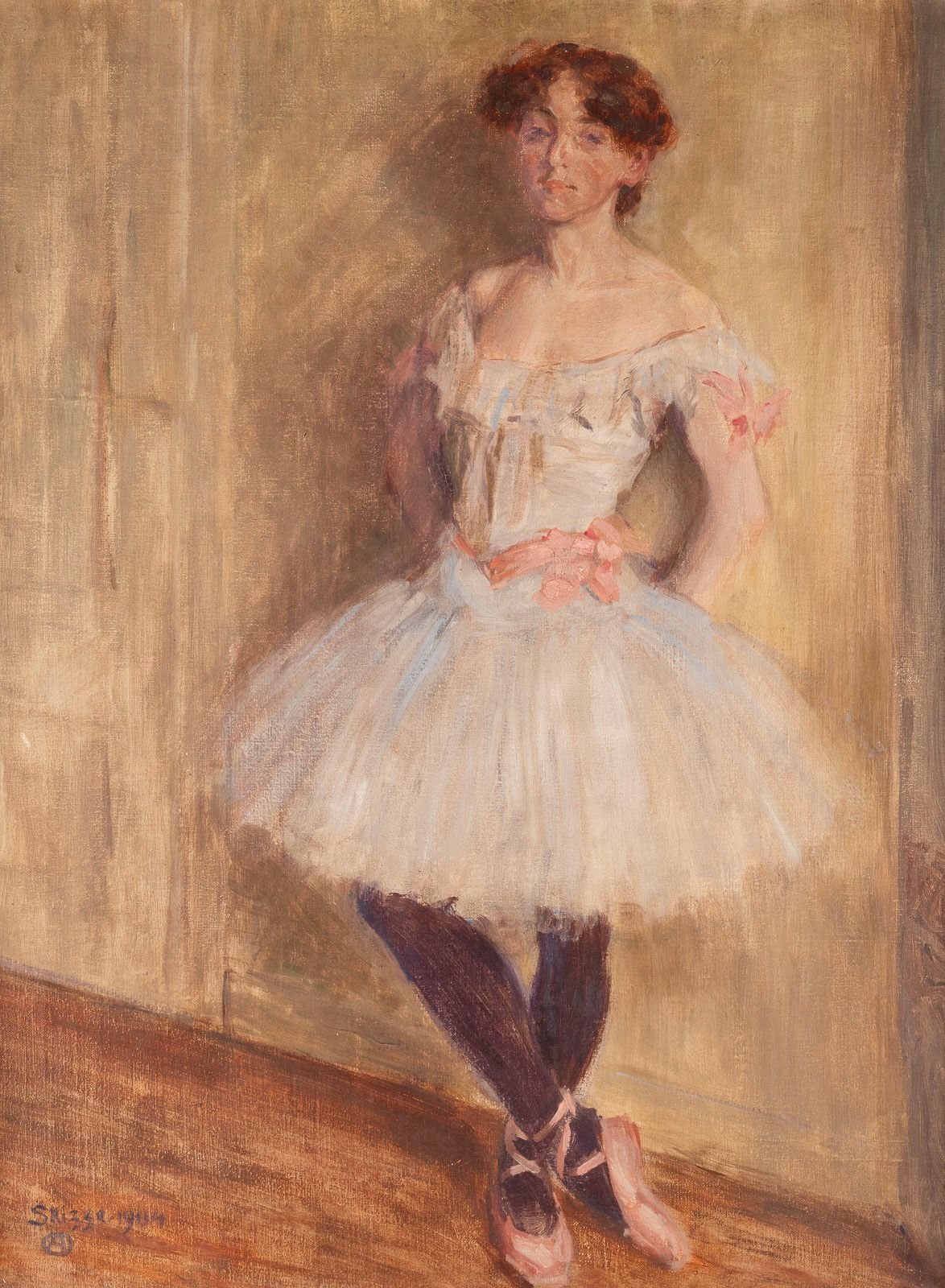
German Dance Archives Cologne: Visiting Hours, Tickets, and Guide to Cologne Historical Sites
Date: 15/06/2025
Introduction
The German Dance Archives Cologne (Deutsches Tanzarchiv Köln, DTK) is one of Europe’s foremost institutions dedicated to preserving, researching, and celebrating the art of dance. Since its founding in 1948, the archive has amassed an unparalleled collection of documents, photographs, costumes, films, and personal estates, making it an essential resource for scholars, artists, and visitors passionate about dance history. Today, the DTK, supported by the SK Stiftung Kultur and the City of Cologne, is located in the city’s dynamic Mediapark district. Its adjoining Tanzmuseum brings dance heritage to life through innovative exhibitions and educational programs, creating a vibrant hub for cultural engagement and discovery.
This comprehensive guide provides up-to-date information on visiting hours, tickets, collections, exhibitions, accessibility, and tips for making the most of your visit. Whether you’re a researcher, a dance enthusiast, or a cultural tourist, the German Dance Archives Cologne is a must-visit destination within Cologne’s rich tapestry of historical sites.
For the latest updates and practical information, see the official website of the German Dance Archives Cologne and the SK Stiftung Kultur page.
Table of Contents
- Historical Background and Significance
- Holdings and Collections
- Visiting Information
- Exhibitions and Public Engagement
- National and International Role
- Preservation Challenges
- Nearby Attractions and Travel Tips
- Frequently Asked Questions (FAQ)
- Stay Connected
- References
Historical Background and Significance
Origins and Development
The German Dance Archives Cologne was established by Kurt Peters in 1948 as a private initiative to preserve the fleeting art of dance, which, unlike music or theatre, often leaves little material trace (Wikipedia; Tanzarchive.de). The archive relocated to Cologne in 1965, at a time when the city was becoming a center for dance innovation. Institutional support from SK Stiftung Kultur and the City of Cologne in 1985 further strengthened its mission and public accessibility (SK Stiftung Kultur).
Expansion and the Tanzmuseum
In 1997, the Tanzmuseum (Museum of Dance) opened as an annex, expanding the archive’s public engagement through exhibitions, interactive displays, and educational programming (Deutsches Tanzarchiv Köln). Directed by dance scholar Frank-Manuel Peter, the DTK operates from a modern facility in Cologne’s Mediapark, offering full accessibility for all visitors.
Cologne as a Dance Metropolis
Cologne’s post-war cultural revival—marked by milestones like the 1957 opera house opening and the reformation of the Cologne Dance Ensemble—was pivotal in establishing the city as a dance hub. The DTK’s collections chronicle these “golden years,” highlighting Cologne’s role in shaping German and international dance (Deutsches Tanzarchiv Köln).
Holdings and Collections
The DTK’s collections exceed one million items, organized across four departments: archive, library, video/film collection, and museum (Wikipedia; SK Stiftung Kultur).
Archive
- Bequests and Estates: Over 400 personal and artistic estates from luminaries such as Mary Wigman, Harald Kreutzberg, and Kurt Jooss.
- Photo Archive: Approximately 160,000 photographs and 117,000 negatives, including works by Siegfried Enkelmann and Hans Rama.
- Documents: Manuscripts, letters, reviews, and archival materials reflecting the evolution of dance.
Museum Collection
- Artworks: Paintings, sculptures, and graphics by artists including Ernst Oppler and Arthur Grunenberg.
- Costumes: Historical and contemporary dance costumes illustrating visual and stylistic trends.
- Film & Video: Rare recordings, including performances like Kurt Jooss’s “The Green Table.”
Library
A specialized library of over 13,000 books, 85 periodicals, and rare publications supports research into dance history, theory, and pedagogy (SK Stiftung Kultur).
Visiting Information
Location and Access
- Address: Im Mediapark 7, 50670 Cologne, Germany
- Public Transport: Hansaring S-Bahn and U-Bahn stations are nearby; tram lines 1 and 7 and several bus lines serve the area. Cologne Central Station is approx. 2 km away.
- By Car: Underground parking available in Mediapark, though public transport is recommended.
Opening Hours
- Tanzmuseum (Exhibitions): Daily except Wednesdays, 2:00 pm – 7:00 pm. Closed on Wednesdays.
- Archive & Library: Tuesday 10:00 am – 7:00 pm; Wednesday and Thursday 10:00 am – 4:00 pm. Always check the official site for updates, especially around public holidays.
Admission and Ticketing
- Museum Admission: Standard ticket €5.50; reduced €3 (students, seniors, etc.).
- Free Entry: All Mondays, including the first Monday of each month.
- Guided Tours: Available by appointment (English tours require advance notice). Contact the DTK for scheduling.
Visitor Amenities
- Facilities: Cloakroom, lockers, accessible restrooms, and a museum shop with catalogues and souvenirs.
- Nearby Cafés: No on-site café, but several options in Mediapark.
- Wi-Fi: Available in designated areas.
Exhibitions and Public Engagement
The Tanzmuseum presents annually changing exhibitions with themes ranging from German Expressionist dance to the legacy of icons like Mary Wigman. Displays include costumes, photographs, multimedia, and original documents (Deutsches Tanzarchiv Köln). Public programs feature:
- Guided tours (primarily in German, English available with notice)
- Workshops for children and adults
- Film screenings, readings, and lectures
For current and upcoming events, consult the official events calendar.
National and International Role
As a member of the Association of German Dance Archives (VDT), the DTK collaborates with institutions such as the Dance Archive Leipzig and Mime Centrum Berlin to safeguard dance heritage (Tanzarchive.de). The DTK’s digital initiatives—such as the “tanz digital” project—expand access for researchers and dance enthusiasts globally.
Preservation Challenges
Dance’s ephemeral nature makes its documentation especially challenging. The DTK addresses this by collecting a wide array of media—manuscripts, visual art, costumes, films, and personal correspondence—thus ensuring the artform’s legacy for future generations (Tanzarchive.de).
Nearby Attractions and Travel Tips
Combine your visit with other Cologne cultural highlights, including:
- Cologne Cathedral (Kölner Dom)
- Museum Ludwig
- Historic Old Town (Altstadt)
- Rhine River Promenade
Travel Tips:
- Use public transport for convenience.
- Weekday afternoons offer a quieter museum experience.
- Free entry on Mondays is popular; arrive early for exhibitions.
Frequently Asked Questions (FAQ)
Q: What are the German Dance Archives Cologne visiting hours?
A: Tanzmuseum is open daily except Wednesdays, 2:00 pm – 7:00 pm. Archive and library have separate hours (see above).
Q: Is admission free?
A: Admission is free on all Mondays; otherwise, standard and reduced rates apply.
Q: Can I book tickets in advance?
A: Individual tickets are purchased at the desk; group tours should be arranged in advance.
Q: Is the facility accessible?
A: Yes, with elevators and barrier-free restrooms.
Q: Are guided tours available in English?
A: Yes, with advance booking.
Q: Can I take photos inside?
A: Photography is generally not permitted in exhibitions; check with staff.
Stay Connected
- For the latest news, exhibitions, and events, visit the official German Dance Archives Cologne website.
- Subscribe to newsletters and follow DTK on social media.
- Explore digital collections and virtual tours online.
- Download the Audiala app for cultural guides and updates.
References
- German Dance Archives Cologne official website
- SK Stiftung Kultur: Deutsches Tanzarchiv Köln
- Wikipedia: Deutsches Tanzarchiv Köln
- Tanzarchive.de: German Dance Archives Cologne
- Museenkoeln: German Dance Archives Cologne
